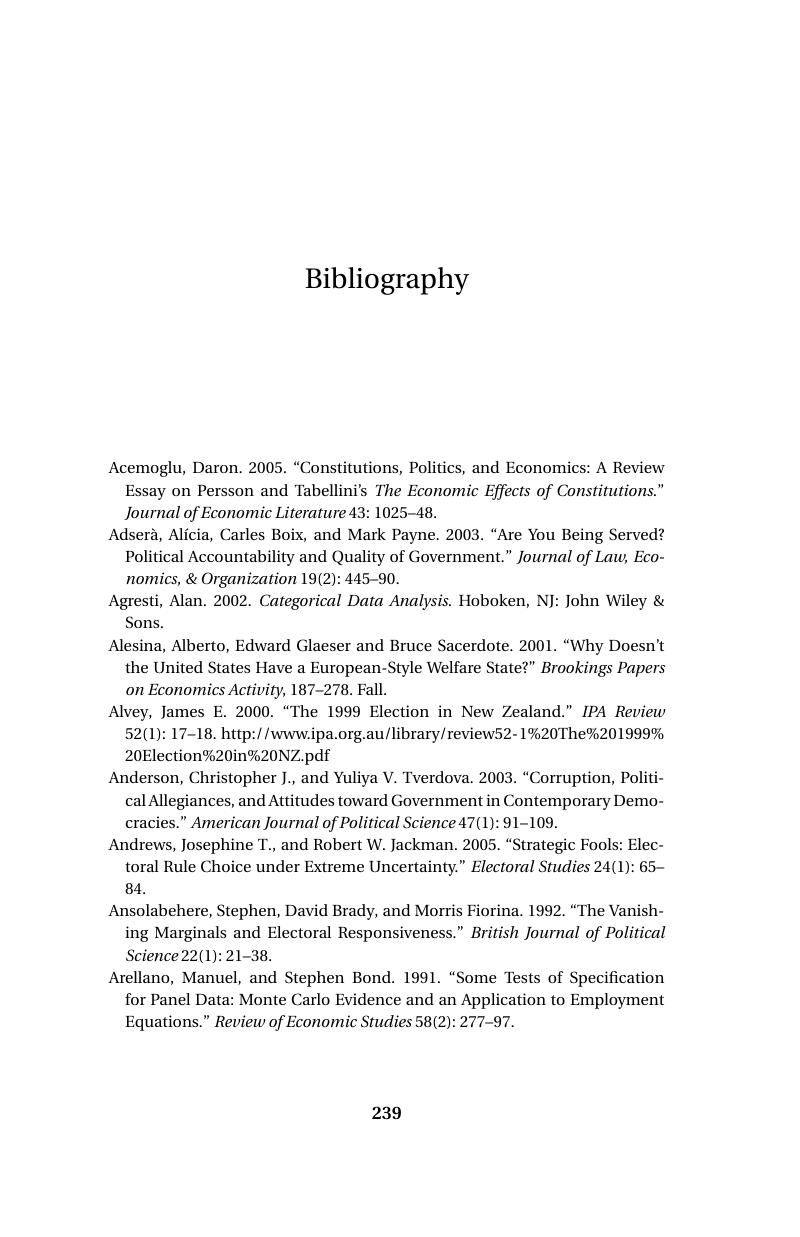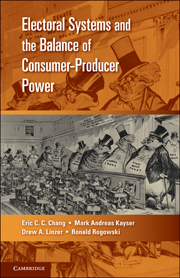Book contents
- Frontmatter
- Contents
- Acknowledgments
- 1 Introduction
- 2 Electoral Systems and Consumer Power: Theoretical Considerations
- 3 Electoral Systems and Real Prices: Panel Evidence for the OECD Countries, 1970–2000
- 4 Electoral Systems and Real Prices around the World
- 5 A Closer Look: Case Studies and Mechanisms
- 6 Socioeconomic Origins of Electoral Systems
- 7 Conclusion
- Bibliography
- Index
- References
Bibliography
Published online by Cambridge University Press: 05 June 2012
- Frontmatter
- Contents
- Acknowledgments
- 1 Introduction
- 2 Electoral Systems and Consumer Power: Theoretical Considerations
- 3 Electoral Systems and Real Prices: Panel Evidence for the OECD Countries, 1970–2000
- 4 Electoral Systems and Real Prices around the World
- 5 A Closer Look: Case Studies and Mechanisms
- 6 Socioeconomic Origins of Electoral Systems
- 7 Conclusion
- Bibliography
- Index
- References
Summary

- Type
- Chapter
- Information
- Electoral Systems and the Balance of Consumer-Producer Power , pp. 239 - 252Publisher: Cambridge University PressPrint publication year: 2010

